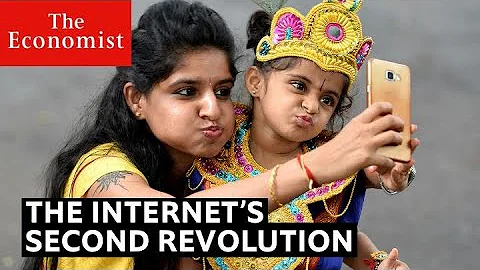The current era is an era that is jokingly called rolled into . In this era, the post-90s and post-00s generations are very characteristic of the times:

is just like the "post-00s rectification phenomenon in the workplace" that was popular on the Internet some time ago.

But among this generation, there are also hidden problems that cannot be ignored.
This is the depression phenomenon among young people.
Depression is a growing problem. For example, in the past 4 years, the number of antidepressant drugs prescribed by doctors around the world has increased by more than 40%.

This is definitely not an exception. The World Health Organization estimates that depression will affect the health of 40% of adults in 2025, becoming the world's second largest death threat. Many experts even believe that depression has become an epidemic.
Some estimate that the clinical manifestations of depression afflict us 10 times more than they did a century ago. For those with depression , the data on suicide are also worthy of our attention. Over the past 30 years, the number of suicides has increased, especially among young people aged 20 to 25. Moreover, the number of people who have attempted suicide is 20 times higher than the number who actually commit suicide.

The reasons why everyone suffers from depression or leaves their job are different, but there are some common trends and roots, including the desire for material life that is constantly reinforced by the media. The financial crisis brought about by the 2008 financial crisis also shook people's confidence in the world. It also had a profound impact on family and social life. People increasingly emphasized the importance of personal struggle. This is what we now call involution.
All of this aggravates the individual's sense of insecurity and crisis. Ironically, although the prevalence of social media has created unprecedented online connections in history, when young people feel that they are in need of companionship and comfort, there are fewer friends to truly seek help.
Most importantly, one of the fundamental reasons why so many people feel unhappy is that happiness itself is misunderstood.
There are many misunderstandings about happiness, and they often appear in the sentence pattern "As long as I..., I will be happy":
- As long as I win the lottery, I will be happy;
- As long as I have a big house, I will be happy;
- As long as I get married, I will be happy;
- As long as I get divorced, I will be happy;
- As long as I have children, I will be happy;
- As long as I have no children, I will be happy;
- As long as I have a good figure, I will be happy ;
- As long as I look good, I will be happy;
- As long as I have plastic surgery, I will be happy;
- As long as I change my job, I will be happy... etc.

I am not saying that these things will not make you happy. If the above things can be satisfied, some people may be very happy. But once satisfied, new desires will appear, and the unhappiness of dissatisfaction will appear.
Tesla founder Musk said, "There is only a very small probability that our world is not illusory."

Things we usually think can make us happy are just illusions, not reality.
Many people think that having more money will make them happy.
There is a recent college student who joined a large Internet company in a first-tier city after graduation. One month's salary is equivalent to a year's salary for people in third- and fourth-tier cities. Far larger than his peers.
He felt very satisfied at first. life is brilliant. But when he discovered that his consumption was much higher than that of his peers, and when he learned that his old classmates had higher wages than him, he actually felt unhappy instantly? !

An old proverb in the banking world: the more you earn, the more you spend. The bank seems to be right.
For most people, what they want is always much more than what they have got. The ideal income is always more than their actual income.
Of course money is important. If you don't even have the money to cover basic living needs, a person will certainly be in big trouble.But looking at the other extreme, does having a lot of money make you happy? Not necessarily so.
The United States is the richest country in the world today, but its national happiness ranks among the bottom. From 1973 to 2002, the UK's GDP increased by 80%, but people's life satisfaction has remained unchanged.

We always assume that many things that make us happy for a while will also make us happy for a lifetime.
In the book Stumbling on Happiness, psychologist Daniel Gilbert (Dan Gilbert) writes: “We think that money brings intense and lasting happiness, but in fact , it can only bring a little short-lived happiness."
Many well-known sociologists also agree with this: "The myth that money can make people happy is one of the traps of happiness."
In a study of 792 wealthy people. In a study of adults, “more than half said wealth did not bring them more happiness; and half of those with a net worth of more than 10 million dollars believed that money caused more problems than it solved. There are more problems.”
For many people, a relaxed and comfortable life is the best way to obtain lasting happiness. But this is easy to question: for active, energetic people, retirement means boredom and disappointment. For those who support this view, life that is always "easy" is often boring.
There is a big difference between temporary happiness and fundamental happiness. There are many things that can make you feel good temporarily:
your favorite food, chocolate, a party, a good book, music you like, your favorite team winning a game, or a good night with your loved one. But when your hormones subside or the sun comes out, you will still feel a deep emptiness and loneliness. You may be happy for a while, but lasting happiness requires a deeper sense of accomplishment.
What is that?
There seems to be an answer vaguely emerging, talent and flow!
The flow state is currently recognized as the happiest state in the world.
Discovering your talent is like finding your eternal lover, and entering the flow can forget the passage of time.
For example, if a person who is born with a natural love for performing is asked to do a tedious job of data collection, he will most likely not like this job. If you do it for a long time, your natural talent and value will not be reflected and expressed, and you will naturally become depressed.
Flow and boredom are antonyms in themselves.
Boredom and depression are similar words.
In a flow state, there will be no depression.
is doing what he likes, and he will never be too sad.
Talent, flow, and long-term happiness are like an endless source of life and become his motivation.
Perhaps, the era of involution has transitioned into the era of destiny, allowing people who have discovered their talents to do what they like and are good at, and the value will continue to radiate out, and depression will be decomposed?
At least, in my ten years of observation, no one who does such things has ever been found to have sustained depression. On the contrary, everyone feels relaxed, happy, and valuable.





















